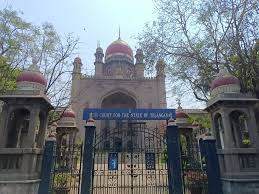
Hyderabad: The Telangana High Court has dismissed charges of corruption against Dr M. Suresh Kumar, a civil assistant surgeon. Dr. Suresh since retired, suffered a sentence and fine of Rs 10,000 handed by the principal special judge for SPE and ACB cases in Hyderabad. According to the prosecution, the complainant, a staff nurse, requested the appellant to provide the last pay certificate and service register. In spite of several reminders, the appellant did not hand over the service register of the accused to the Ursu Karimbad Maternity Hospital nor did they issue the last pay certificate. It was alleged that the doctor made a demand for Rs 10,000. Accordingly, a trap case was laid and the appellant was apprehended. According to the appellant, the complainant “did not hand over the charge after she was transferred. For the said reason, the question of issuing a last pay certificate or sending a service register does not arise. The reason for false implication is that the appellant had issued several memos to the complainant.” He also stated that “even on the date of trap, the spontaneous explanation given by the appellant was that though appellant refused, the complainant had kept the amount in the table drawer and left hurriedly. He secured the said amount to return and placed it in an almirah in the bedroom. In the background of the issues that were in between complainant and the appellant and coupled with the trap day events, it clearly goes to show that the appellant was falsely implicated”.
On a detailed consideration of the appeal Justice K. Surrender said “All the circumstances as projected by the prosecution, which is backed by documentary evidence, are viewed collectively as the version given by the appellant is more probable. The explanation offered by the appellant, immediately during the post-trap proceedings, is proof enough to draw the conclusion of false implication.” He said strained relation between complainant and the appellant cannot be lost sight of. The court cannot be selective while adjudicating and rely only on the demand and acceptance, while ignoring the other circumstances and background of the case. As already discussed, the charge was not handed over by complainant and the circumstances of the case when considered as a whole, the accused had discharged his burden of proving his case convincingly.

